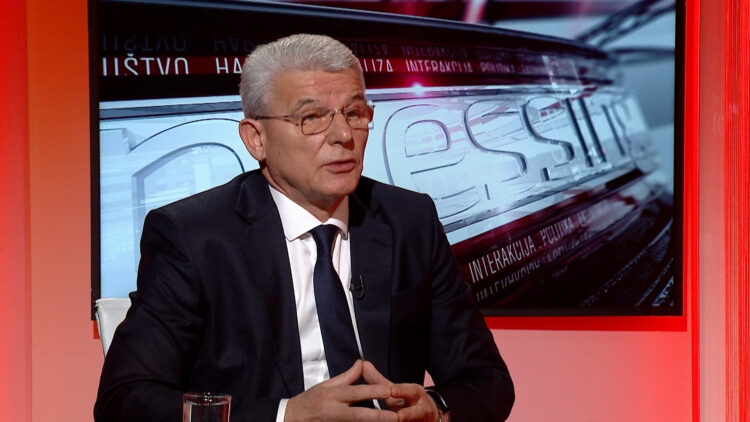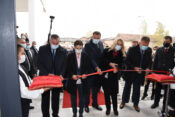
The Bosniak member of the tripartite Presidency, Sefik Dzaferovic, told N1 on Wednesday that Bosnia's Serb-majority entity will face a "legal response" for its violations of the constitution and that a team is currently working on preparing it.
Dzeferovic referred to Republika Srpska’s (RS) announced construction of hydropower plants on the Drina river together with neighbouring Serbia, arguing that rivers are under the auspices of the state and regions cannot make international deals involving the property of the state.
This is unconstitutional “and we will fight against it,” Dzaferovic said, explaining that this is an example for why Bosnia’s international administrator, tasked with monitoring the civilian implementation of the 1995 Dayton Peace Agreement, must remain in the country.
Bosnian Serb leader Milorad Dodik, who is Dzaferovic’s colleague in the Presidency, has been arguing that the current High Representative, Austrian diplomat Valentin Inzko, as well as his predecessors, have worked against Serb interests in Bosnia and that the office of the official should be shut down.
“Those who argue that he must leave are behaving in a way that ensures that the High Representative never leaves,” Dzaferovic said.
He pointed out that there are laws and previous Constitutional Court decisions regarding state property and that the river Drina is an international border river and “nothing can be built there without the approval from Bosnia and Herzegovina.”
The Bosniak Presidency member said that an “adequate legal procedure” is in the works as a response to the unconstitutional behaviour of Republika Srpska.
“Everything is ready and will be done properly,” he said, adding that Bosnia’s rights will be protected.
He also said that he talked with the Minister of Foreign Affairs about the protest note to Serbia, and Minister Bisera Turkovic told him that she would inform the competent ministry in Serbia that the deal between RS and Serbia was not in accordance with the Constitution.
As for the High Representative, Dzaferovic explained that if the official would leave the country, the RS National Assembly could adopt a declaration of independence and there would be no way for Bosnia and Herzegovina to prevent it.
The High Representative will not leave until a mechanism is in place that will ensure something like this is impossible, he said.
He commented on the intense cooperation between the Bosnian Serb leader and the leader of the main Bosnian Croat party, Dragan Covic, saying that their goals are “the strengthening of the entity on the expense of the state” and “further ethnic division in Bosnia and Herzegovina.”
“They have their goals. Covic’s goal is not the establishment of a third entity – not because he doesn’t want it but because it’s impossible to establish. He wants everything to be based on ethnicity, and nothing to be possible to do without the Croat Democratic Union (HDZ BiH),” he said.
Serbia and Croatia are signatories of the Dayton Peace Agreement because they “participated in the aggression” on the country, he argued, stressing that the only obligation those countries have is to not do anything that would jeopardise the sovereignty and integrity of Bosnia.
However, he noted mixed messages coming from Belgrade and from Zagreb.
Statements were made linking Kosovo’s independence to the independence of Republika Srpska and those were met by Serbian President Aleksandar Vucic with silence, Dzaferovic said.
He also commented on statements by officials in Zagreb who said that they will not meet with the Bosnian Croat Presidency member, Zeljko Komsic, because he is, according to them, not a true representative of Bosnian Croats.
Such messages are “insulting to Bosnia and Herzegovina,” Dzaferovic said, arguing that Croatia is not respecting the legal and legitimate decisions of citizens and institutions in Bosnia.
“If Croatia wants good relations with Bosnia and Herzegovina, this must be respected. We don’t have ‘leaders of peoples’. They are trying to send a message that there is no state and no institutions in Bosnia and Herzegovina,” he said.
Dzaferovic also said that he expects that the electoral victory of Joe Biden will mean more intensive cooperation between Bosnia and the United States.






